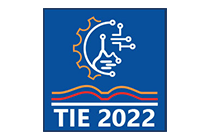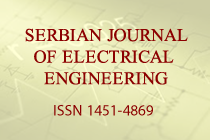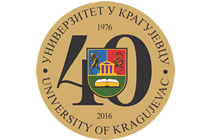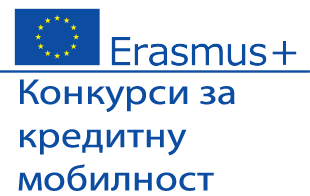FIRST YEAR
| # | Course ID | Course name | Semester | E | L | Lab | ECTS | Mandatory /Elective | ||
|---|---|---|---|---|---|---|---|---|---|---|
| 1 | Elective courses 1 | |||||||||
| 31001 | Metrology - Selected Chapters | 1 | 5 | 0 | 2 | 10 | E | |||
| 31046 | Synthesis, Characterization and Application of Amorphous Magnets | 1 | 5 | 0 | 2 | 10 | E | |||
| 31004 | Mathematical Modeling in Magnetism | 1 | 5 | 0 | 2 | 10 | E | |||
| 31047 | Condensed Matter Physics | 1 | 5 | 0 | 2 | 10 | E | |||
| 31048 | Thermal Analysis, Methods and Application | 1 | 5 | 0 | 2 | 10 | E | |||
| 31049 | Thin-film and Thick-film Technologies of Electrotechnical Materials | 1 | 5 | 0 | 2 | 10 | E | |||
| 0 | Modern methods of instrumental analysis | 1 | 5 | 0 | 2 | 10 | E | |||
| 0 | Computer modeling of physical phenomena and simulation of material properties | 1 | 5 | 0 | 2 | 10 | E | |||
| 2 | Elective courses 2 | |||||||||
| 31007 | Mathematical Analysis - Selected Chapters | 2 | 5 | 0 | 2 | 10 | E | |||
| 31008 | Electromagnetics - Selected Chapters | 2 | 5 | 0 | 2 | 10 | E | |||
| 31009 | Sensorics | 2 | 5 | 0 | 2 | 10 | E | |||
| 31050 | Multiferroic Materials | 2 | 5 | 0 | 2 | 10 | E | |||
| 31053 | Physics of Ceramic Materials - Selected Chapters | 2 | 5 | 0 | 2 | 10 | E | |||
| 31054 | Biomaterials | 2 | 5 | 0 | 2 | 10 | E | |||
| 0 | Stereology | 2 | 5 | 0 | 2 | 10 | E | |||
| 3 | 31016 | Research work 1 | 2 | 0 | 0 | 7 | 10 | M | ||
SECOND YEAR
| # | Course ID | Course name | Semester | E | L | Lab | ECTS | Mandatory /Elective | ||
|---|---|---|---|---|---|---|---|---|---|---|
| 4 | Elective courses 3 | |||||||||
| 31018 | Advanced Magnetic Materials | 3 | 5 | 0 | 2 | 10 | E | |||
| 31019 | Advanced Solar Technologies | 3 | 5 | 0 | 2 | 10 | E | |||
| 31055 | Amorphous Materials, Nanomaterials and Nanotechnologies | 3 | 5 | 0 | 2 | 10 | E | |||
| 31056 | Ceramic Materials Processing | 3 | 5 | 0 | 2 | 10 | E | |||
| 31057 | Advanced Composite Materials | 3 | 5 | 0 | 2 | 10 | E | |||
| 31058 | Advanced Ceramic Nanomaterials | 3 | 5 | 0 | 2 | 10 | E | |||
| 5 | 31029 | Research work 2 | 3 | 0 | 0 | 7 | 10 | M | ||
| 6 | 31031 | Doctoral Thesis (theoretical framework) | 4 | 0 | 0 | 20 | 30 | M | ||
THIRD YEAR
| # | Course ID | Course name | Semester | E | L | Lab | ECTS | Mandatory /Elective |
|---|---|---|---|---|---|---|---|---|
| 7 | 31032 | Doctoral Thesis (research work) | 5 | 0 | 0 | 20 | 30 | M |
| 8 | 31033 | Doctoral Thesis - preparation and defence | 6 | 0 | 0 | 20 | 30 | M |
The PhD programme ELECTRICAL AND COMPUTER ENGINEERING is a three-year programme of 180 ECTS that is normally based on a five-year master’s degree.
The programme consists of a coursework section of 90 ECTS credits and a doctoral dissertation.
A broad spectre of research specializations is available, offered by a large and research-intensive faculty that also gives access to international research. The doctoral programme in Electrical and Computer Engineering is organized within three modules:
1. Electric Power Engineering (power networks of the future that are of high relevance to society and industrial needs, metrology and precise measurements, electrical machines)
2. Computer Engineering (computer and sensor networks, design of embedded systems and applications, image processing and artificial intelligence)
3. Advanced Materials and Technologies in Electrical Engineering (advanced amorphous and nanostructured materials, electroceramics, polymers, application of soft magnetic materials in sensorics)
A broad spectre of research specializations is available, offered by a large and research-intensive faculty that also gives access to international research. The doctoral programme in Electrical and Computer Engineering is organized within three modules:
1. Electric Power Engineering (power networks of the future that are of high relevance to society and industrial needs, metrology and precise measurements, electrical machines)
2. Computer Engineering (computer and sensor networks, design of embedded systems and applications, image processing and artificial intelligence)
3. Advanced Materials and Technologies in Electrical Engineering (advanced amorphous and nanostructured materials, electroceramics, polymers, application of soft magnetic materials in sensorics)










